Spiders in the home can be an unwelcome sight for many, sparking a need for effective preventive measures. These eight-legged visitors, while often harmless, can become a nuisance, especially in large numbers. This post delves into various strategies to keep spiders out of your house, ranging from simple household tips to more comprehensive methods. Understanding the reasons behind their intrusion and adopting the proper preventive measures can make your home less inviting to spiders. Let’s explore practical and safe ways to maintain a spider-free environment, ensuring peace of mind for homeowners.
Contents
- 1 Insights into Spider Behavior
- 2 Regular Cleaning and Maintenance
- 3 Sealing Entry Points
- 4 Natural Repellents and Deterrents
- 5 Appropriate Landscaping and Outdoor Management
- 6 Use of Pesticides and Chemicals
- 7 Strategic Furniture and Storage Arrangement
- 8 Professional Pest Control and Long-Term Solutions
- 9 Secure Your Space From Spiders
Insights into Spider Behavior
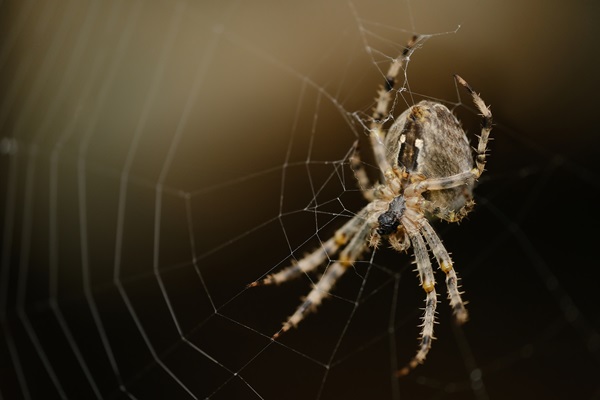
Spiders often seek habitats that fulfill their basic needs for shelter, moisture, and food. They are typically drawn to quiet, undisturbed areas like attics, basements, and corners. Understanding these preferences is crucial in deterring them. For example, reducing clutter in these areas can make them less attractive to spiders. Additionally, spiders are less likely to inhabit well-lit, frequently disturbed spaces, guiding homeowners on how to arrange their interiors.
The primary reason spiders enter homes is in search of prey. This usually occurs when there’s an abundance of insects, their main food source. Therefore, controlling the insect population in your home is a key step in spider prevention. Seasonal changes, particularly during colder months, can also drive spiders indoors in search of warmth. Awareness of these factors helps in tailoring specific strategies for spider control suited to different times of the year and various home environments.
Regular Cleaning and Maintenance
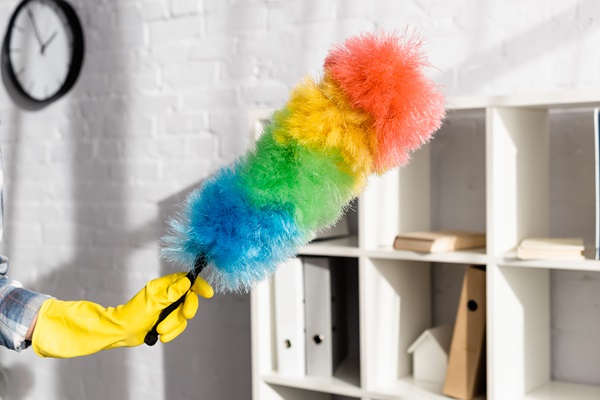
Regular cleaning is a fundamental step in keeping spiders away. Dusting and vacuuming frequently eliminate spider webs, eggs, and spiders themselves. Pay special attention to secluded areas where spiders are likely to hide. Reducing clutter not only makes spaces less appealing to spiders but also makes cleaning more effective. Ensuring your home remains tidy and well-maintained disrupts the ideal habitat spiders seek.
Beyond basic cleaning, deeper maintenance tasks are essential. This includes clearing out basements, attics, and garages periodically. Inspecting these areas for webs and nests helps in early detection and removal of spiders. Additionally, keeping storage boxes sealed and raised off the ground can prevent spiders from finding refuge. Implementing these maintenance routines creates an environment that is consistently hostile to spiders, making your home less prone to infestations.
Sealing Entry Points
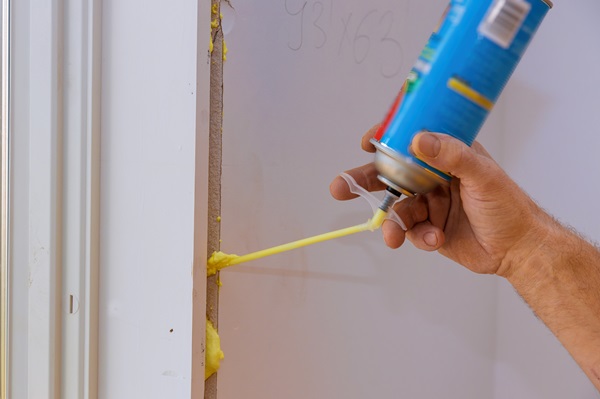
Identifying and sealing potential entry points is critical in spider-proofing your home. Begin by inspecting the exterior of your house for cracks, holes, and gaps. These can often be found near windows, doors, and foundations. Sealing these openings with caulk or weather stripping not only prevents spiders from entering but also improves energy efficiency. Regular checks for new or widened gaps are necessary, as structural changes can occur over time.
Door sweeps and window screens are additional measures to block spider entry. Ensuring that screens are intact and without tears is important, as even small openings can be enough for spiders to slip through. Additionally, keeping doors and windows closed or screened, especially during evening hours when insects (and consequently spiders) are more active, can significantly reduce intrusions. This method of physical exclusion is often one of the most effective in keeping spiders outside where they belong.
Natural Repellents and Deterrents

Natural repellents offer a safe and eco-friendly option for keeping spiders away. Essential oils such as peppermint, tea tree, and lavender are known for their spider-repelling properties. These can be diluted with water and sprayed in areas prone to spider activity. The strong scents are unappealing to spiders and can effectively deter them from entering treated areas. It’s important to reapply these solutions regularly for sustained effectiveness.
Other natural deterrents include certain plants that repel spiders, such as eucalyptus, lemon, and mint. Planting these around your home or placing them in pots near entryways can serve as a natural barrier. Additionally, diatomaceous earth, a non-toxic powder, can be sprinkled in corners and along baseboards to deter spiders. Its abrasive texture is harmful to spiders but safe for humans and pets. Using these natural methods keeps spiders away and contributes to a toxin-free home environment.
Appropriate Landscaping and Outdoor Management
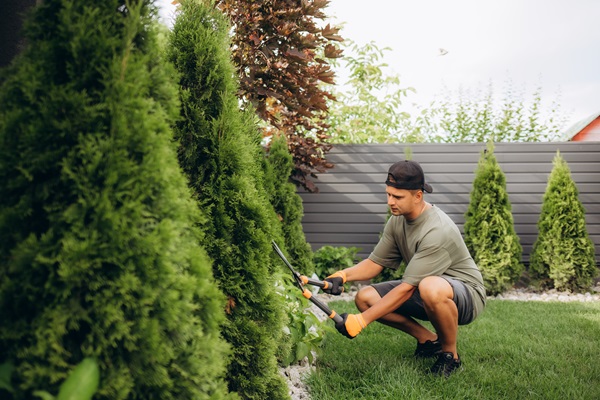
Proper landscaping and outdoor management play a significant role in deterring spiders from entering your home. Overgrown vegetation, especially near the house, can serve as a perfect habitat for spiders and their prey. Keeping bushes, shrubs, and trees well-trimmed and away from your home’s walls reduces the likelihood of spiders migrating indoors. Additionally, consider using gravel or rock instead of mulch near the house’s foundation, as mulch can retain moisture and attract insects, which in turn attract spiders.
Outdoor lighting can inadvertently attract insects, which, as a food source, draw spiders. To minimize this effect, use yellow sodium vapor lights outside, as they are less attractive to insects. Alternatively, positioning outdoor lights away from doors and windows, directing the light towards the house with reflectors, can reduce the number of insects and spiders near entry points. Regular cleaning of outdoor light fixtures to remove webs and nests also helps maintain a spider-free perimeter around your home.
Use of Pesticides and Chemicals

In situations where natural remedies and preventive measures are insufficient, the use of pesticides and chemicals may become necessary. When selecting spider control products, it’s essential to choose those specifically designed for spiders and safe for indoor use. Always follow the manufacturer’s instructions carefully to ensure safety and effectiveness. Target areas where spiders are frequently seen, like corners, under furniture, and along baseboards. However, remember that chemical treatments should be used as a last resort and in conjunction with other preventive measures.
Safety is paramount when using chemical repellents. Ensure proper ventilation when applying any pesticide indoors, and consider wearing protective gear like gloves and masks. Keep children and pets away from treated areas until completely dry. It’s also advisable to test the product on a small area first to avoid any potential damage to surfaces or fabrics. If the spider problem persists or is severe, consider consulting a professional exterminator for a more targeted and safe approach.
Strategic Furniture and Storage Arrangement

The way furniture and storage items are arranged in your home can influence spider presence. Spiders prefer undisturbed, hidden spaces, so furniture that sits directly on the floor or against walls can provide ideal hiding spots. Raising furniture on legs, maintaining space between the furniture and walls, and avoiding storage under beds can reduce these hiding places. Regularly moving and cleaning behind furniture also disrupts any potential habitats for spiders.
Storage practices are equally important. Opt for plastic storage containers with tight-fitting lids instead of cardboard boxes, as cardboard can attract spiders and other pests. Keeping storage areas, like closets and attics, organized and clutter-free makes them less appealing to spiders. Regularly inspecting these areas for signs of spiders and cleaning them out can prevent long-term infestations. Strategic arrangement and maintenance of furniture and storage areas are simple yet effective ways to keep your living space spider-free.
Professional Pest Control and Long-Term Solutions
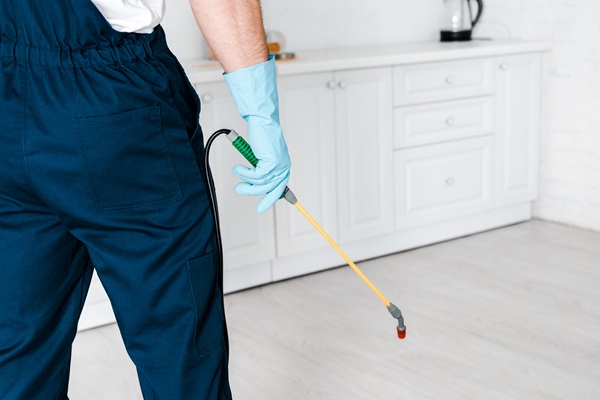
For persistent or large-scale spider problems, professional pest control services offer a reliable solution. Pest control professionals can provide a thorough assessment of your home, identify the source of the problem, and implement effective, long-term strategies. They often use specialized equipment and materials that are more effective and longer-lasting than typical over-the-counter products. Additionally, they can offer tailored advice on how to prevent future infestations based on the specific layout and conditions of your home.
Investing in long-term prevention is crucial. This might include regular professional inspections, especially in areas prone to spider activity. Implementing a scheduled maintenance plan, either through a pest control service or as part of your home care routine, can provide ongoing protection against spiders. Such proactive measures, combined with the tips and strategies outlined in this article, can ensure that your home remains a comfortable and spider-free environment.
Secure Your Space From Spiders
Maintaining a spider-free home requires a blend of understanding, prevention, and action. From natural deterrents to professional pest control, the strategies discussed offer comprehensive solutions to keep spiders at bay. It’s important to regularly implement these measures for lasting effectiveness. Remember, a proactive approach is key to ensuring your living spaces remain comfortable and free of unwanted eight-legged guests. Start applying these methods today and enjoy a safer, spider-free environment in your home.


